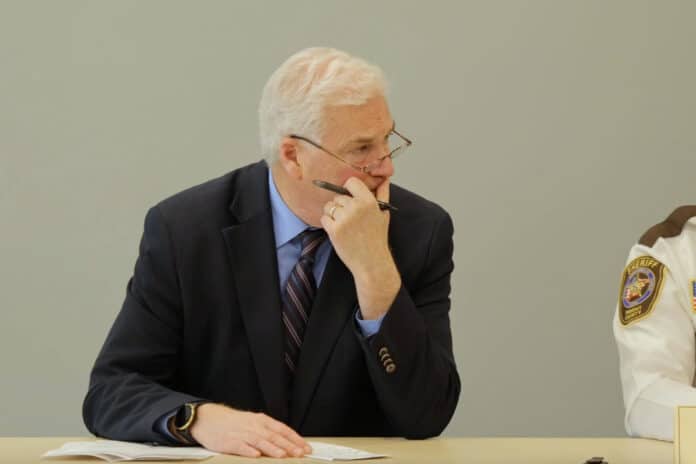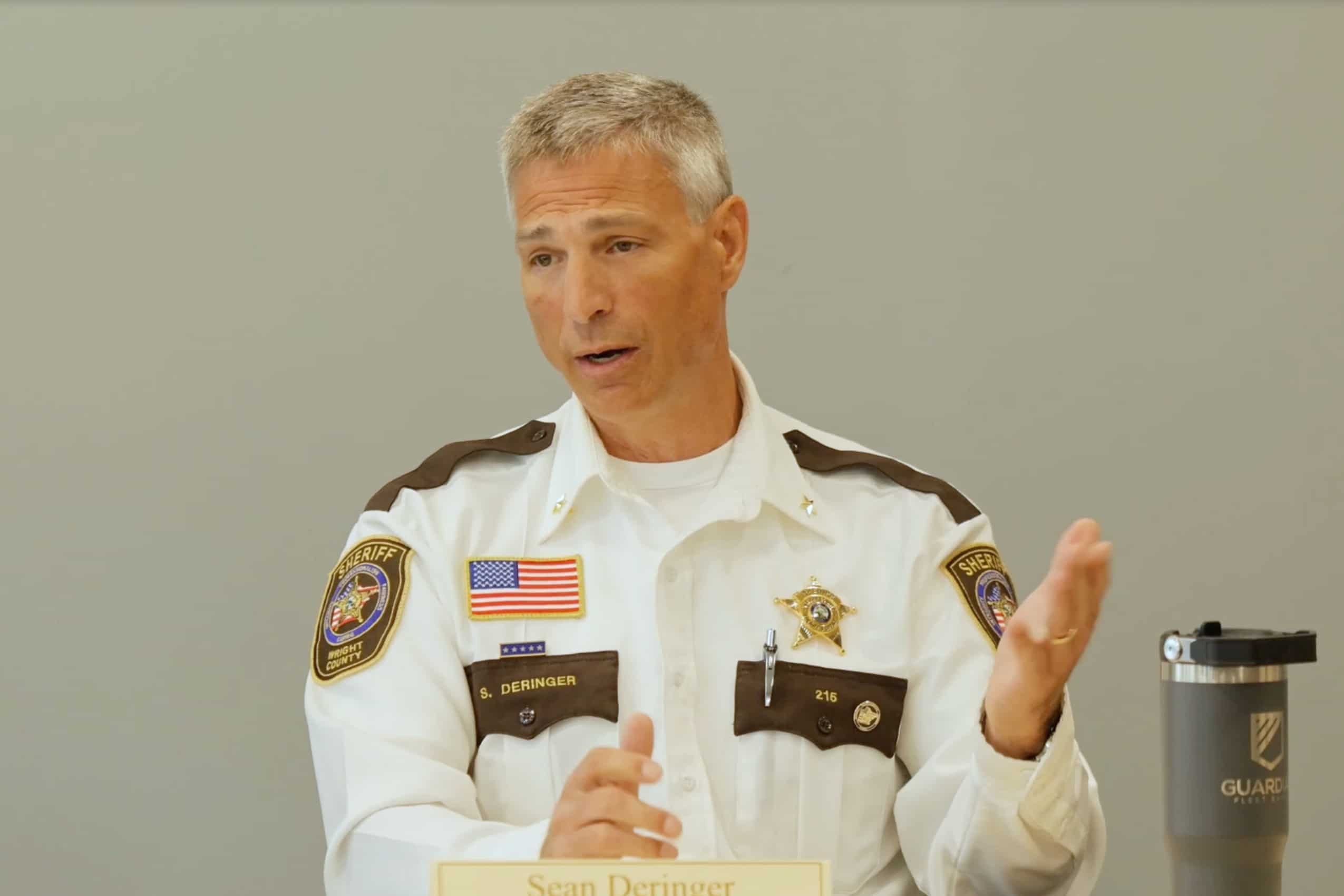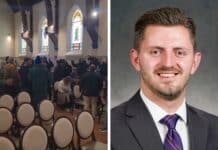
A group of law enforcement leaders from Minnesota’s Sixth Congressional District discussed a variety of police issues at a roundtable hosted by House Majority Whip Tom Emmer, R-Minn., earlier this week.
During the event at the Wright County Law Enforcement Center, participants discussed the creation of a separate tax rate for law enforcement officers and how the southern border crisis is affecting their communities.

Starting the event by telling attendees that “it’s a mission of mine to destroy the ‘Defund the Police’ movement,” Congressman Emmer opened up the discussion to hear directly from law enforcement professionals.
Talking about police recruitment challenges, St. Cloud Police Chief Jeffrey Oxton suggested that the creation of a separate tax rate for law enforcement, such as a flat tax, could assist with recruitment and retention of police officers. In discussing the proposal, the St. Cloud police chief mentioned that members of the armed forces are given certain tax benefits for their service.
Rep. Tom Emmer hosted a roundtable discussion with law enforcement officers across Minnesota. One officer proposed lower tax rates as an incentive for police officers to join the force. pic.twitter.com/nTOlMJ1mVa
— Alpha News (@AlphaNewsMN) May 15, 2024
Additionally, Chief Oxton said the separate tax rate would acknowledge the risks that are involved for those who work in law enforcement.
Congressman Emmer, who appeared to receive the separate tax rate idea positively, said the proposal is “something worth exploring both at the federal level and the state level.”
In addition to discussions on police retention and recruitment, Congressman Emmer asked the room about “how the open southern border is affecting your communities that you’re responsible for.”
Wright County Sheriff Sean Deringer said “fentanyl, and the overdoses attributed to it, are off the charts.” The sheriff stated that the medical examiner has weekly cases which involve either accidental overdoses or suicide overdoses.
Rep. Tom Emmer hosted a roundtable discussion with law enforcement officers across Minnesota. Sheriff Sean Deringer of Wright County spoke about the impact illegal immigrants have had on crime in the state. “It’s like they’re being coached,” he said. pic.twitter.com/k2aBRSH4m1
— Alpha News (@AlphaNewsMN) May 15, 2024
Regarding crimes connected to illegal immigration, Sheriff Deringer listed retail crime, theft, and fraud. In talking about the crime, the sheriff described “the uncooperative spirit of those that we are arresting, it’s like they’re being coached, they’re being manipulated, they’re being taught the ins and the outs of the criminal element.”
Speaking about the strain on law enforcement, Sheriff Deringer said “its become very problematic, and I think it’s going to continue to exacerbate the problem that we’re seeing.”
Later, the discussion returned to fentanyl-related overdoses. Chief Oxton said he expects that the increased prevalence of fentanyl will result in more overdose deaths amongst young people. The chief also said community members are growing more and more concerned as fentanyl use increases amongst younger demographic groups.
Additionally, Chief Oxton said fentanyl death statistics “tell only part of the story” because the number of deaths would have been far greater if first responders did not have Narcan. A form of medication used to stop opioid overdoses and prevent death, Narcan is commonly carried by first responders.
“If you think about the number of deaths that would have occurred had Narcan not been available, we’d be probably having to build a new morgue in St. Cloud or in areas all across the state,” said Chief Oxton.
Congressman Emmer asked Chief Oxton about where the fentanyl was coming from.
“It’s all coming from Mexico,” said the police chief.
Rep. Tom Emmer hosted a roundtable discussion with law enforcement officers across Minnesota. A St. Cloud officer said the source of fentanyl — the cause of increasing overdose deaths — is Mexico. pic.twitter.com/EPLvY31kUF
— Alpha News (@AlphaNewsMN) May 15, 2024
Emmer hosted the roundtable Monday at the start of National Police Week in order to “hear how we can best support our men and women in blue.”
“Every day, law enforcement officers head out to work, never quite sure what the next call may bring,” he said. “Unfortunately, we have seen the dangerous reality law enforcement officers face hit very close to home.”








